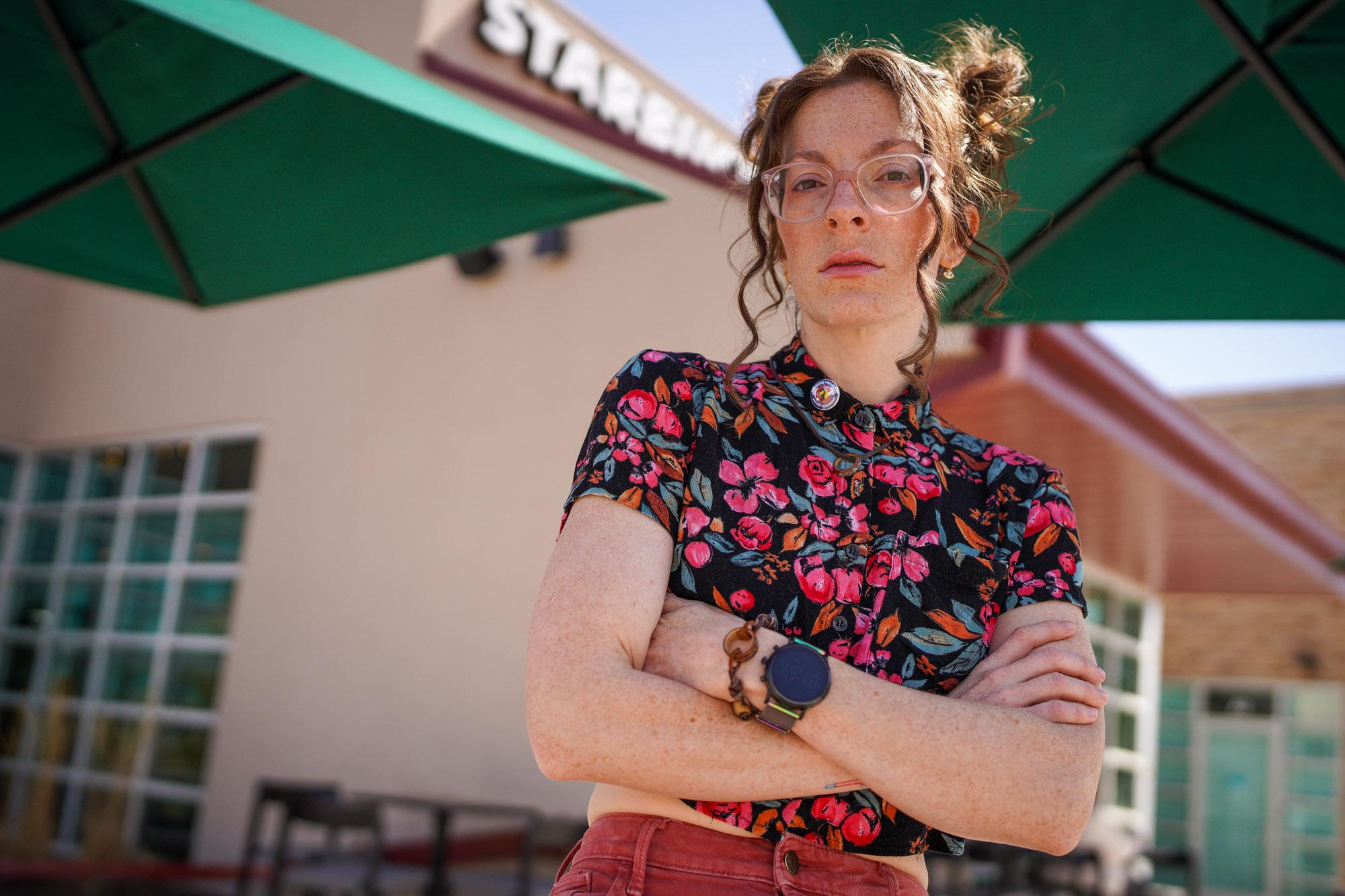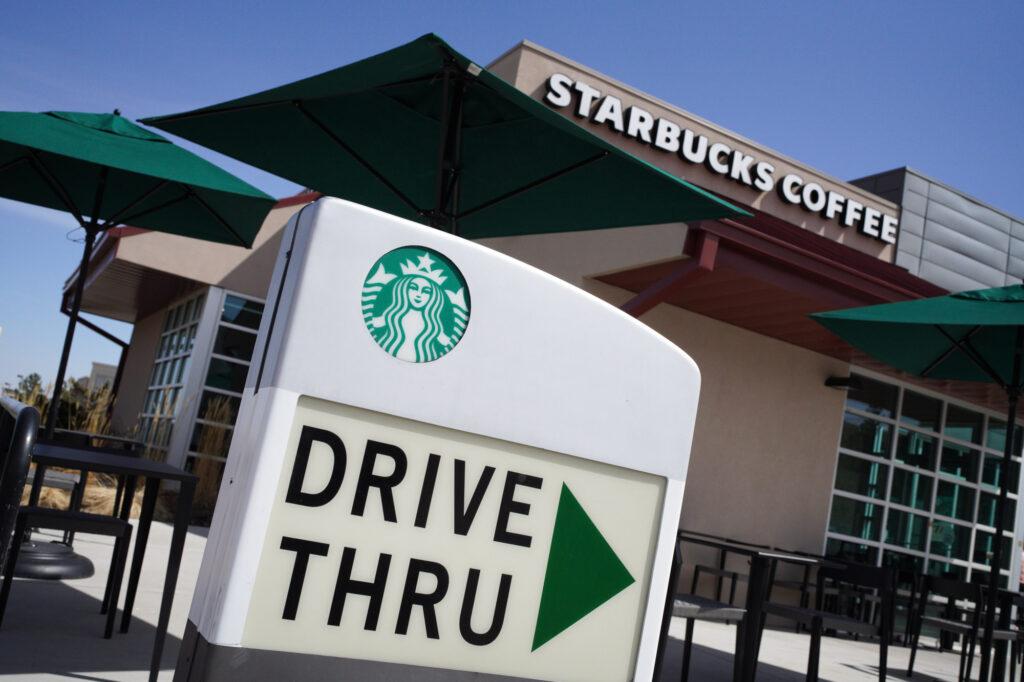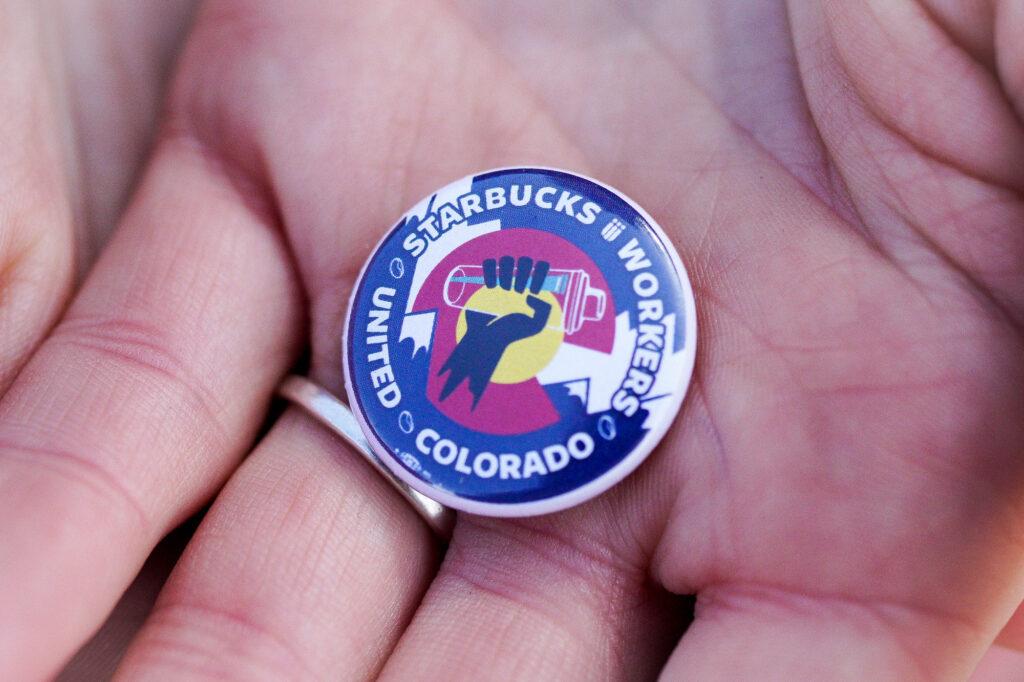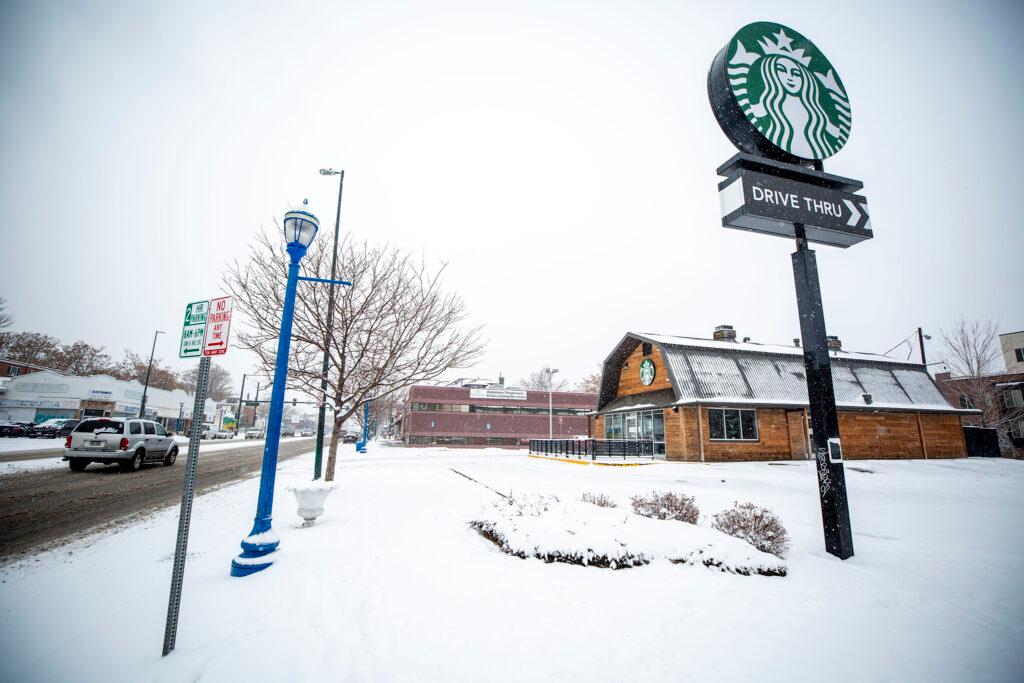
When Len Harris got a part-time job at Starbucks in 2016, she mainly saw it as a way to supplement her income.
Harris worked full-time as a receptionist at a veterinarian’s office in Superior at the time, but she quickly realized she liked the fast-paced environment and her co-workers at the coffee shop, who were mostly high school students and people in their mid-20’s. In 2020, she quit her receptionist job to take on closer to 40-hours a week as a shift supervisor, overseeing a team of baristas.
The gig worked out great until last fall, when she and other employees started to see their hours dwindle, Harris said. Some weeks they’d get assigned just around 20 hours of work.
Harris, 30, asked for an explanation from her supervisors, but never got a solid reason. For a company that reported record profits last year, thinning out staff didn’t make sense to her.
“If I didn’t pick up a shift, I would’ve only worked 7 hours last week,” Harris said. “One of the things we’re hearing is that [Starbucks] can’t afford the labor, but [the company is] seeing exponential profits, so that doesn’t make sense to me.”
The inconsistency in scheduling was one of the motivators that pushed Harris to petition for a union election last December.
After clearing a review process with the National Labor Relations Board, workers at the Superior shop on Rock Creek Circle began voting by ballot Tuesday.
The election will last several weeks. If successful, the Superior workers would have the first unionized Starbucks store in Colorado.

The group’s efforts come on the heels of about 11 other stores across the country, which have voted to join Workers United, a barista-led chapter affiliated with the massive Service Employees International Union. Starbucks, the largest coffee shop chain in the world, has remained staunchly against organizing efforts since baristas in Buffalo, New York became the country’s first to unionize last year.
Election petitions have been filed at hundreds of other stores, including at least five other locations across Colorado. The group includes three shops in Denver and two in Colorado Springs, which are still waiting on election dates.
A Starbucks spokeswoman declined an interview with CPR News ahead of the Superior election, but she said barista schedules are determined by customer demand, which ebbs and flows seasonally. The spokeswoman shared a general position statement on unionization efforts.
“From the beginning, we've been clear in our belief that we are better together as partners without a union between us and that conviction has not changed,” the company said.
She pointed to the company's benefits package and a $1 billion dollar investment in wage increases, which is projected to bring the average barista pay up to $17 an hour this year, as evidence of their commitment to employees. Howard Shutlz, the company’s returning CEO, also promised this week to invest more in the company’s people and stores in the coming years.
Despite that, Colorado workers say wages haven’t kept up with the rising cost of living. On top of better pay and more consistent scheduling, they’re looking for more realistic customer quotas, which have gotten harder to fill as the company has diversified its food and beverage offerings, Harris said.
“What once was a black coffee and a bagel is now three breakfast sandwiches and three specialized customized lattes,” Harris said. “The demand has become far too much for us to handle adequately.”
Election victories in Buffalo and at other stores have emboldened workers in Colorado. Many also cite lingering frustrations with pandemic working conditions as motivators to organize.
“The pandemic kind of highlighted so much about our country that needs to change, especially within the workforce,” Harris said. “Some of the wealthiest people in our country have kind of become egregiously wealthier these past two years while so many are suffering.”
Union membership has declined nationwide over recent decades. Roughly 7.5 percent of all workers in Colorado are represented by a union, making it 37th in that category compared to other states, according to the Bureau of Labor Statistics.
But the numbers likely don’t capture an upswing in union interest among workers as the economy has recovered from the pandemic and everyday expenses have skyrocketed, said Jeffrey Zax, an economics professor at the University of Colorado Boulder who studies the impacts of labor movements.
“This is a moment when, or period when the workers have an unusual amount of power in the labor market,” Zax said. “Employers who are not aware of that or not responding to it are certainly provoking workers to think more carefully about how they can use their power to negotiate more favorable compensation and work condition contracts.”

If other union elections are any indication, the Colorado efforts will likely be successful, since stores only need a simple majority of store staffers to vote “yes.” Many still praise aspects of working for the company even as they rally for more collective power.
“Starbucks has always been a home for me,” said Bradley Kurtz, a 22-year-old shift supervisor who is leading organizing efforts at two stores in Colorado Springs. “It really is a great place to work, but that doesn’t mean it’s without its flaws.”
Kurtz started working at Starbucks during high school. He says he stuck with the job because he loves his colleagues and the company pays college tuition for employees who work over 20 hours a week.
But he doesn’t think he would be able to keep working there on his $15 an hour wage if he didn’t live with his parents, which cuts down on his housing expenses.
“If I didn’t have them, I imagine it would be very difficult to get by,” he said.
He has about a year left in an online business administration degree at Arizona State University.
Kurtz would like a union to focus on getting the company to loosen its tipping rules. Starbucks currently limits tipping to orders placed through its smartphone app. Changing that could bump wages up to $5 an hour, he argues.
“Unionizing gives us a seat at the table with corporate so that we have a contract,” Kurtz said. “It really gives us a little more control over what we want to see on the job and help future employees have a better time.”
Some workers have criticized the company for allegedly pressuring baristas to vote against organizing.
Last month, a group of baristas at a Starbucks on Colfax Avenue in Denver went on a day-long strike claiming unfair labor practices. Managers had been telling employees directly to vote “no” in the store’s upcoming union election, said Vanessa Castro, a shift supervisor at the store.
“We have two-on-one meetings where managers will talk to employees about the elections with very clear messages about the election,” Castro said. “They are very clear.”
A company spokeswoman said in a statement that any claims of anti-union activity were “categorically false.”

Managers’ enforcement of various company policies, including dress codes, has gotten tighter amid the union push, said Len Harris, the Superior store organizer.
Still, she and other pro-union baristas say they are excited about their next steps. Working through the pandemic and the Marshall Fire has brought the group closer together, Harris said.
On Dec. 30, as the fire burned through town, Harris and her roommate, another Starbucks employee, drove home, packed up their dogs and some personal belongings, and evacuated to a hotel room near Denver for the night.
Shortly after they arrived, frazzled and scared, their supervisor called, Harris said.
“Her first response was ‘Expect to be back at work at noon tomorrow,’” she recalled.
The call caught Harris off guard. She was worried about whether her apartment was still standing, along with thousands of other homes in the area.
“I don’t think there was animosity there, but the tone deafness was crazy,” she said.
After the initial order to return to work, the company switched gears.
Starbucks closed its Rock Creek Circle shop for about a week after the fire. The company also bought employees hotel vouchers and meals. Harris eventually returned home to her apartment, which survived.
But the phone call with her boss during the evacuation left her feeling frustrated. It was the latest example of what she describes as a growing pressure to meet customer demands at the expense of its workers.
“I’m a little trepidatious because you see these stores that have filed before us and they've won their elections, which is great. And then I'm seeing how long it's taking for the bargaining process to happen,” Harris said. “But it still makes me ready to fight.”
She thinks a victory will make her Starbucks shop a better place for workers and the people who buy their coffee there every day.
“I hope to see a much healthier, more manageable work-life balance at Starbucks,” Harris said. “We’ll have more energy to actually talk with people and put that into the community again.”
The following Starbucks shops in Colorado have filed petitions to hold union elections with the NLRB:
- Superior (2800 Rock Creek Circle)
- Colorado Springs (Brookside and Nevada)
- Colorado Springs (Academy and Flintridge)
- Denver (2975 E. Colfax Ave.)
- Denver (5835 Leetsdale Drive)
- Denver (303 16th St.)









